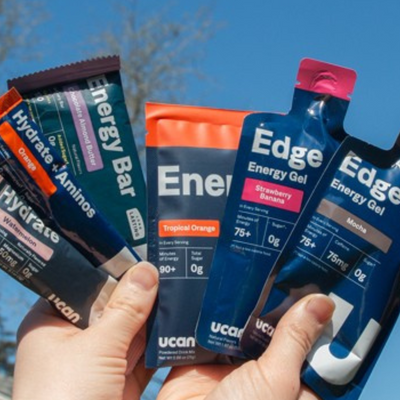What Is Protein?
Before you can determine how much protein you need in your diet, it's important to have at least a basic understanding of what protein is. Protein is a macronutrient that's made of amino acids that are joined together by peptide bonds.What Does Protein Do?
Derived from the Greek "protos," protein comprises about 15% of a person's body weight and fuels many of the body's most critical processes. The human body is capable of producing some protein and amino acids on its own, but others must be obtained from food. These essential amino acids mostly come from animal sources, but nuts and legumes can be viable sources as well.What Are the Benefits of Protein?
There are many health and wellness benefits you can enjoy when you're consuming the appropriate amount of protein in your diet. For starters, protein is key to carrying oxygen throughout the blood and making antibodies to fight off infections. Protein also aids in the creation of new cells to keep you healthy. For those looking to lose or maintain weight, protein is also ideal for curbing appetite and boosting metabolism. By eating plenty of protein, you may be able to feel fuller longer without consuming too many calories.
Protein is also key to recovering from both strength and endurance workouts. That's because protein provides the building blocks your body needs to heal and grow muscle tissue. Protein has also been found to:
- Lower blood pressure
- Improve bone density
- Speed up recovery by providing amino acids that repair and rebuild muscle tissue that's broken down during exercise
How Much Protein Do I Need Per Day?
Unfortunately, there's no simple or universal answer to the question of how much protein per day a person needs; recommendations can vary not only by age group but also by overall health and other factors. A person who is trying to build muscle mass will need to consume more protein than the "average" person. According to the United States Department of Agriculture and the United States Department of Health and Human Services, basic daily protein recommendations are as follows:- Children under 4: 13 grams
- Children 4–8 years: 19 grams
- Children 9–13: 34 grams
- Women and girls 14 and older: 46 grams
- Boys 14–18: 52 grams
- Men 19 and older: 56 grams
Can You Have Too Much Protein?
Getting the appropriate amount of protein in your diet can help you stay healthier, curb your appetite, and even build more muscle mass. However, there is such a thing as too much protein. So, how much protein is too much? Again, this will be very dependent on your age and physical activity levels. Generally, however, if more than 35% of your daily calories are coming from protein sources, you're probably overdoing it. If you consume 2,000 calories per day, this means that no more than 700 of those calories should be from protein.What Foods Are Good Sources of Protein?
Clearly, figuring out the right balance of protein in your diet is important to your health and wellness. So, what are some of the best sources of protein you can incorporate into your diet? Many protein sources are animal-based:- Poultry
- Turkey
- Fish
- Pork
- Red meat
- Eggs/dairy
- Soy
- Beans and legumes
- Nuts and seeds
- Whole grains
What Supplements Are Good for Protein?
Not all protein supplements are made equal. This is where it pays to do your research and find a protein powder that's made with the highest quality whey or plant proteins.
At UCAN, we take a lot of pride in our Protein + Energy powder, which is key to optimizing your post-workout muscle repair while unlocking long-lasting energy with LIVSTEADY. And with delicious flavors like cookies and cream, chocolate, cocoa, and vanilla, you can satisfy your cravings while staying fuller for longer. Our Energy + Protein powders are gluten-free and made with 100% whey or plant-based protein, offering 20 grams of pea protein per serving.
Meanwhile, UCAN Energy + Protein powder has no added sugar and is gentle on the stomach. You can use it immediately after a strength-training workout to improve muscle repair, as a high-protein breakfast to start your day, or as a healthy snack anytime! Learn more about our protein powders and explore our other great products (including energy bars and healthy snacks) today.
Likewise, feel free to get in touch with our friendly team if you have any questions or need help placing an order!








